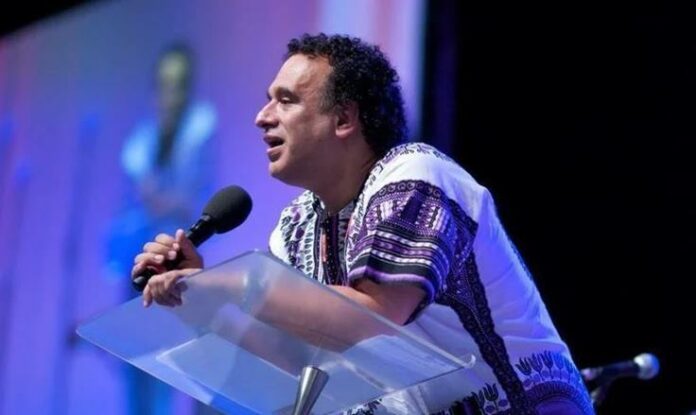When the scandal surrounding Mike Pilavachi, founder of Soul Survivor, started to emerge into the public eye in April 2023, it was because a small number of people found the courage to speak publicly about their experiences. Some had suffered directly at the hands of Pilavachi.
One of the horrific themes to emerge from the independent review into the culture and practices of Soul Survivor, conducted by barristers Fiona Scolding KC and Ben Fullbrook, is that very senior figures in Soul Survivor festival, the church in Watford and the wider Church of England had been told about Pilavachi’s inappropriate behaviour as long ago as 2004, but failed to stop him.
In their documentary, Let There be Light, worship leader Matt Redman and his wife Beth recalled approaching a “senior leader” at a church in London, only to be told: “That’s just Mike: nothing will be done.” Shortly after the Redmans spoke out, brothers Tim and Pete Hughes, both prominent church leaders who were also part of Pilavachi’s youth group, released a statement on social media. When they had raised concerns regarding Pilavachi’s behaviour with Soul Survivor trustees in 2004, their “concerns were not taken seriously”, they said, and relationships soon broke down.
Perhaps people were too busy to get involved in a messy safeguarding issue. Perhaps they too were afraid of Pilavachi’s powerful position. Perhaps they thought that the success of Soul Survivor in attracting young people was worth a few casualties. Or perhaps they thought that it and its charismatic leader were too big to fail. Whatever the reasons, numerous very senior Christian leaders decided to walk by on the other side.
Generational impact
Without minimising the impact on those who had direct experience of Pilavachi’s abuse, we need to recognise that what has happened goes far wider. Over the course of two decades, hundreds of thousands of young people around the world have attended Soul Survivor festivals, read Pilavachi’s books or heard him speak.
Many will still feel that their experience remains foundational to their Christian faith. For others, their faith has been shaken by what they have learned over the past months. Others will not be able to square the revelations about Pilavachi’s naivety, immaturity and confused sexuality – as defined by the Scolding Review – with an ongoing commitment to Christian faith.
A whole generation of young evangelical Christians now has to work out what can be salvaged from the teaching and ecstatic experiences of Soul Survivor, and what has to be left in the spiritual scrapyard.
We also need to remember that the Pilavachi news comes in the context of many other high-profile cases of alleged abuse. We are still awaiting the Church of England’s review of its handling of John Smyth QC, who abused young men in the UK and Africa from 1980 to 2017. Next year will see the trial of Chris Brain, leader of the Nine O’Clock Service, who is facing 34 counts of sexually abusing women. In the very same week, we expect the trial of Rev Jonathan Fletcher, the eminence grise of Anglican conservative evangelicalism, who is facing nine charges of sexual assault.
Evangelical Christianity is being stress tested by a stream of revelations and allegations concerning recent and non-recent abuse. And it is not only the men and women who have been personally subjected to that abuse who have been rocked to their foundations by what is emerging, but hundreds of thousands of ordinary believers, too.
For us, there are only three possibilities: We can abandon our faith as a busted flush; we can stick our fingers in our ears and pretend nothing has happened; or we can take the difficult route of working out how we can incorporate the experience of leadership failure into our faith.
Read it all in Premier Christianity



